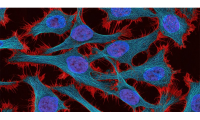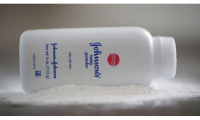-
Gilead’s Tecartus gets revised safety demand amid FDA’s push for CAR-T boxed warnings
- Source: drugdu
- 87
- January 26, 2024
-
Gilead’s Trodelvy Falls Short of Phase III Trial Primary Endpoint of Improved Overall Survival in NSCLC
- Source: drugdu
- 87
- January 25, 2024
-
AI Leverages Tumor Genetics to Predict Patient Response to Chemotherapy
- Source: drugdu
- 85
- January 25, 2024
-
Recbio Enters a License and Strategic Cooperation with SPIMACO
- Source: drugdu
- 77
- January 25, 2024
-
Johnson & Johnson inks $700M deal to resolve talc consumer protection claims from 42 states
- Source: drugdu
- 178
- January 25, 2024
-
New Liquid Biopsy Approach Improves Blood Tests’ Ability to Detect Circulating Tumor DNA
- Source: https://www.labmedica.com/molecular-diagnostics/articles/294799968/new-liquid-biopsy-approach-improves-blood-tests-ability-to-detect-circulating-tumor-dna.html
- 132
- January 24, 2024
-
Data from 11 studies of CHIATAI TIANQING’s class 1 innovator anilotinib, pembrolizumab, and bemosulbemab unveiled
- Source: drugdu
- 159
- January 24, 2024
-
RecA protein skips “unwinding” step in DNA repair
- Source: drugdu
- 179
- January 23, 2024
-
FDA Approves Balversa for Locally Advanced, Metastatic Urothelial Carcinoma
- Source: drugdu
- 261
- January 23, 2024
your submission has already been received.
OK
Subscribe
Please enter a valid Email address!
Submit
The most relevant industry news & insight will be sent to you every two weeks.













